
With staff shortages predicted to last up to 2 years and affecting many different industries, many manufacturers are looking for ways to overcome the issue. Supply chains have been disrupted, and whilst there is demand for product, many business are struggling to find the labour to enable them to fulfil demand.
This has led to companies trying many different and innovative ways to overcome the labour shortage and minimise disruption to their business. Below are some examples of methods used and how these methods may help in overcoming the nationwide labour shortage.
Cutting Production, Reducing Product Range
Cutting production and reducing product range are two ways in which you can reduce the amount of labour required to produce product. In doing this it is important to ensure you focus specifically on your core products and eliminate products that make less money or are less competitive. In doing this, you can be sure that your labour input is going to yield the highest ROI for the company.
Increasing Wages To Retain and Attract New Staff
Retaining staff is one of the best ways to ensure you don’t suffer from a labour shortage. This may involve increasing wages for your existing staff. There are also many other ways to increase staff retention such as offering bonus schemes, providing training to help staff reach their goals, etc. With the current labour shortage, attracting new staff can also mean having to increase your pay offer as those looking for jobs often have a variety of job offers to choose from.
Raising Prices
If you are having to pay higher wages and spend more on training your staff to retain them, one of the best ways to minimise this extra expenditure is to raise your selling prices. Often a small percentage increase in selling price will yield good returns on your bottom line profits.
Training/Upskilling Existing Workforce
Upskilling your existing workforce to enable them to fulfil a different job role within your organisation is often a good way of filling positons within the company. It also give your staff the opportunity for career progression within the company whilst removing the need to recruit.
Analyse/Simplify Current Job Roles
Take a step back and analyse current job roles within the company; asking questions such as what does the role involve, what is the reason for this process, how can the job be simplified, etc. You may find that there are some processes that are being done within your company that no longer serve a purpose and can be eliminated. You may also find some processes that can be simplified. Working through existing job roles and removing/simplifying processes can enable you to free up staff time for other activities that need to be done.
Cultivate A Culture To Retain Staff
With the current labour shortage existing staff are often being head hunted by others, so it is very important to ensure that you have a good culture to ensure you retain your current staff. A culture of recognition and reward goes a long way to making staff feel valued and therefore less likely to consider changing jobs.
Automate Repetitive Tasks
Automating the more repetitive tasks in your production process enables you to redeploy your exisiting staff into other roles within the organisation, thereby reducing the need to employ additional staff. There are many different tasks that can be automated, with one of the key tasks being pallet stacking. Stacking pallets by hand is not only a labour intensive activity, but can also reduce the efficiency of your production process as staff stop for breaks, have holidays, and may be unexpectedly off sick at short notice. An automated palletising system will free up your staff to do other jobs within the organisation whilst improving your OEE at the same time.
There are no doubt many other methods for reducing the impact of the current labour shortage, but these are just a few examples that may help.
If you would like further information on automated palletising systems, then feel free to get in touch with us on 01223 499488 or helpline@granta-automation.co.uk and we will be very happy to help.


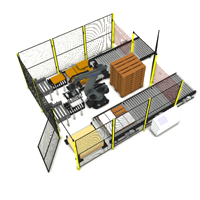
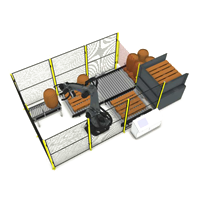
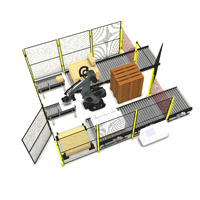
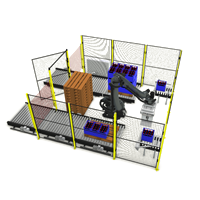
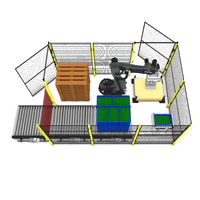

Warning: Undefined variable $aria_req in /var/www/granta-automation.co.uk/news/wp-content/themes/twentyten/comments.php on line 81
Warning: Undefined variable $aria_req in /var/www/granta-automation.co.uk/news/wp-content/themes/twentyten/comments.php on line 86